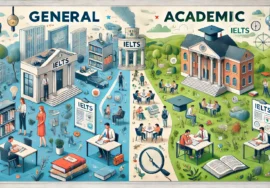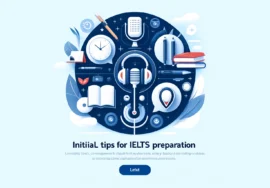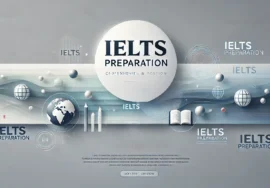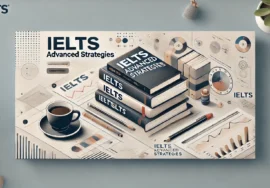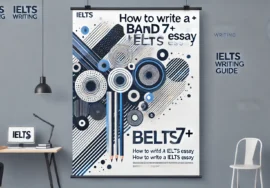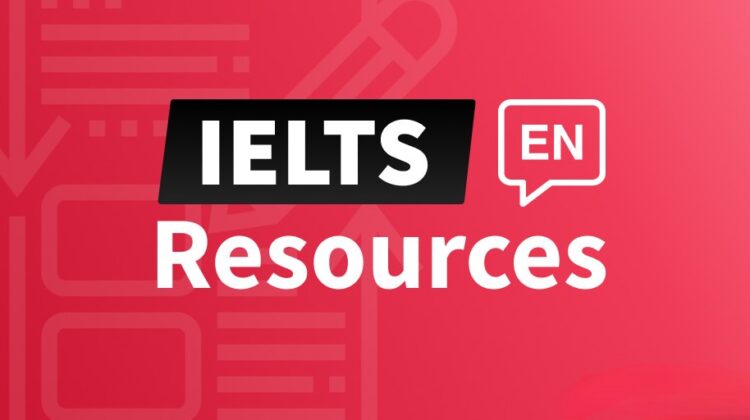
The Best Resources for IELTS Preparation
The best IELTS preparation resources, including top books (Cambridge, Barron’s, Collins), online platforms, apps, and courses. Compare free vs. paid tools and learn how to track your progress effectively.
The Best Resources for IELTS Preparation
Preparing for the IELTS exam requires a strategic approach, utilizing high-quality resources that cater to all four sections: Listening, Reading, Writing, and Speaking. With the vast number of books, online courses, and mobile apps available, selecting the right materials can significantly impact your success.
In this guide, we will explore the best IELTS preparation resources, how to use them effectively, and the difference between free vs. paid tools. We’ll also discuss how to track your progress to ensure you’re improving consistently.
1. Top IELTS Books for Preparation

Books remain one of the most reliable sources for IELTS preparation. Here are some of the best options:
📖 Cambridge IELTS Series (1-18)
- Published by Cambridge University Press, these books contain real past exam papers, making them one of the most authentic sources for IELTS preparation.
- Each book includes four full practice tests, along with answer keys and listening transcripts.
- Ideal for understanding question patterns and getting a real test experience.
📖 The Official Cambridge Guide to IELTS
- Covers both Academic and General Training modules.
- Includes step-by-step strategies for each section of the exam.
- Comes with practice tests and a DVD for listening exercises.
📖 Barron’s IELTS Superpack
- A comprehensive three-book set covering all aspects of IELTS.
- Includes strategies, vocabulary-building exercises, and model essays.
- Comes with MP3 CDs for listening practice.
📖 Collins English for IELTS Series
- Focuses on individual skills (Listening, Reading, Writing, Speaking).
- Provides topic-based exercises to build confidence.
- Great for self-study learners.
📖 Target Band 7 by Simone Braverman
- A practical guide designed for those aiming for Band 7+.
- Focuses on tips and techniques rather than just practice tests.
- Ideal for those struggling with specific IELTS sections.
2. Online Resources and Useful Apps

With the rise of digital learning, there are plenty of online platforms and mobile apps that offer interactive IELTS practice. Here are some of the best:
Best Online IELTS Preparation Websites
🌍 IELTS Liz – Offers free lessons, tips, and practice tests.
🌍 BBC Learning English – Great for improving listening and vocabulary.
🌍 FutureLearn & Udemy – Provide structured IELTS courses.
🌍 Magoosh IELTS – Offers video lessons and practice questions.
Best IELTS Mobile Apps
📱 IELTS Prep App (by British Council) – Free practice tests and exercises.
📱 Magoosh IELTS – Video lessons and vocabulary-building tools.
📱 IELTS Word Power (by British Council) – Helps expand your vocabulary.
📱 E2Language IELTS App – Covers all four skills with expert strategies.
3. How to Use These Materials Effectively
Merely having access to these resources isn’t enough; knowing how to use them effectively is crucial. Here are some strategies:
✅ Create a Study Plan – Divide your preparation time based on your strengths and weaknesses.
✅ Use Official Practice Tests – Simulate the real exam experience with Cambridge IELTS test books.
✅ Take Notes & Review Mistakes – Identify patterns in your mistakes and work on weak areas.
✅ Improve Time Management – Set time limits when practicing to build speed and accuracy.
✅ Record Speaking Practice – Use apps like IELTS Speaking Assistant to analyze your pronunciation and fluency.
✅ Read a Variety of Materials – Read newspapers, academic articles, and blogs to improve reading speed.
4. Free vs. Paid IELTS Preparation Tools
| Feature | Free Resources | Paid Resources |
|---|---|---|
| Access to materials | Limited | Comprehensive |
| Quality of practice tests | Basic | High-quality, real exam simulations |
| Expert guidance | Self-study | Structured lessons by IELTS experts |
| Feedback on writing & speaking | Limited | Detailed expert feedback |
| Custom study plans | General advice | Personalized strategies |
🔹 Who should use free resources? If you have a tight budget and prefer self-study, you can benefit from free websites and apps.
🔹 Who should invest in paid courses? If you need structured guidance, expert feedback, and targeted strategies, investing in a premium IELTS course can be beneficial.
5. How to Track Progress Using Practice Tests

Tracking your progress is essential to measure improvements and identify weak points. Here’s how:
📌 Take a Diagnostic Test – Start with a full-length IELTS practice test to assess your current level.
📌 Keep a Study Journal – Note your scores, mistakes, and areas that need improvement.
📌 Use Score Trackers – Apps like Magoosh & IELTS Prep App help you track progress over time.
📌 Simulate Real Exam Conditions – Take practice tests under timed conditions for better exam readiness.
📌 Review & Repeat – Regularly revise difficult areas and retake tests to measure improvement.
6. Common Mistakes to Avoid in IELTS Preparation
While preparing for the IELTS exam, many test-takers make mistakes that can hinder their progress. Avoiding these pitfalls can significantly improve your score.
❌ Not Practicing Under Exam Conditions
- Many students take practice tests but don’t simulate real exam conditions. Always time yourself and avoid distractions during practice.
❌ Ignoring Time Management
- The IELTS exam is time-restricted, especially in the Reading and Writing sections. Practicing with a clock will help you get used to answering quickly.
❌ Focusing Too Much on One Skill
- Some test-takers concentrate only on their weakest area and ignore others. It’s crucial to balance your preparation across all four sections.
❌ Memorizing Answers for Speaking & Writing
- IELTS examiners look for natural language use. Memorized answers sound unnatural and can lead to lower scores in fluency and coherence.
❌ Not Reviewing Mistakes
- Simply taking practice tests is not enough. Always analyze your mistakes and focus on improving weak areas.
7. The Importance of Vocabulary in IELTS

A strong vocabulary is essential for success in all sections of the IELTS exam. Here’s how you can improve it:
✅ Read Daily – Articles from BBC, The Guardian, and academic journals help expand vocabulary.
✅ Use Flashcards – Apps like Anki and Quizlet make vocabulary practice easier.
✅ Practice Synonyms – IELTS examiners expect a range of vocabulary, not repetitive words.
✅ Write with New Words – Incorporate new vocabulary into essays to reinforce learning.
✅ Listen to Podcasts & Audiobooks – English-language podcasts improve word retention and pronunciation.
💡 Pro Tip: Focus on topic-based vocabulary (e.g., environment, technology, health) as IELTS frequently includes these topics.
8. IELTS Listening: How to Improve Your Score
The Listening section can be challenging due to different accents and fast speech. Here are some tips to score higher:
🎧 Listen to Various English Accents – IELTS recordings include British, American, Australian, and Canadian accents.
🎧 Practice with Podcasts & News – BBC News, TED Talks, and NPR help improve listening skills.
🎧 Develop Note-Taking Skills – Write down key information while listening to recordings.
🎧 Use Subtitles Initially – Then, gradually remove them as your listening improves.
🎧 Be Aware of Distractors – IELTS listening often includes false information before giving the correct answer.
🔹 Best Practice Resources: Cambridge IELTS Listening Tests, BBC Learning English, TED-Ed videos.
9. IELTS Writing: How to Structure a High-Scoring Essay
The Writing Task 2 requires a well-structured essay. Use the 4-paragraph format for a clear and logical response:
📝 Introduction: Paraphrase the question and state your opinion (if required).
📝 Body Paragraph 1: First main point with supporting examples.
📝 Body Paragraph 2: Second main point with supporting examples.
📝 Conclusion: Summarize key points and restate your opinion.
📌 Key Tips for a High Score:
✅ Avoid repetition – Use synonyms and varied sentence structures.
✅ Use linking words – However, In contrast, Consequently, As a result.
✅ Support arguments with examples and facts.
✅ Manage time – Spend 40 minutes on Task 2 and 20 minutes on Task 1.
🔹 Best Resources for Writing Practice: IELTS Simon, IELTS Liz, Cambridge Writing Practice Books.
10. How to Stay Motivated During IELTS Preparation
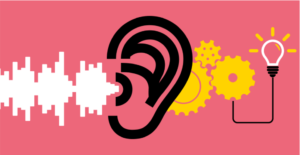
Preparing for IELTS can be stressful and time-consuming. Staying motivated is key to success.
💡 Set Small Goals – Instead of focusing on the final exam, break your study plan into weekly goals.
💡 Track Your Progress – Use a study journal or an app like Magoosh to monitor improvement.
💡 Join IELTS Study Groups – Interacting with fellow test-takers keeps you accountable.
💡 Take Breaks – Studying for long hours can be exhausting. Use the Pomodoro technique (25 minutes study, 5 minutes break).
💡 Reward Yourself – After achieving a study milestone, treat yourself to something you enjoy.
🔹 Motivational Resources: TED Talks, IELTS success stories, and language exchange platforms like Tandem.
Final Thoughts
Choosing the right IELTS preparation resources can make a significant difference in your final score. While books, online courses, and apps provide valuable support, the key to success lies in consistent practice and smart study strategies. Whether you prefer self-study or guided courses, ensure that you track your progress and focus on improving your weak areas.
By using the best resources, setting realistic goals, and practicing effectively, you can achieve your desired IELTS band score with confidence! 🚀



